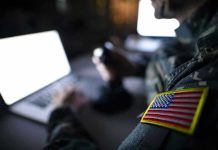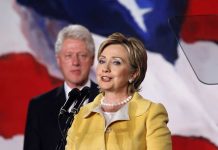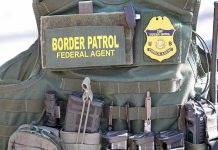
When flight tracking data directly contradicts a sitting president’s public statements about military operations, we’re witnessing either a breakdown in command structure or a deliberate deception that raises serious questions about transparency in national security matters.
Story Highlights
- Two B-1 Lancer bombers flew to Venezuela’s coast on October 23, despite Trump’s flat denial the next day
- Flight tracking data and U.S. officials independently confirmed the bomber mission occurred as reported
- The contradiction highlights growing military pressure on Venezuela’s Maduro regime over drug trafficking
- This represents escalating U.S. operations that have killed over 30 alleged narco-terrorists since September
When Facts Contradict the Commander-in-Chief
President Trump declared reports of B-1 bomber flights near Venezuela “false” during a October 24 press briefing. The problem? Multiple U.S. officials confirmed the mission actually happened, and flight tracking data showed two supersonic B-1 Lancer bombers departing Dyess Air Force Base in Texas bound for Venezuelan coastal waters the previous day. This isn’t a matter of opinion or interpretation – it’s verifiable flight data versus presidential denial.
The disconnect raises uncomfortable questions. Either the president wasn’t briefed on a significant military operation in his own hemisphere, or he chose to publicly deny an action his military had already executed. Neither scenario inspires confidence in our command structure during a period of escalating tensions with a hostile neighbor.
The Pattern of Escalating Military Pressure
The bomber flights weren’t isolated incidents but part of a broader military campaign targeting Venezuelan-linked drug trafficking operations. Since early September, U.S. forces have conducted increasingly aggressive operations in the Caribbean, including strikes on suspected narco-vessels that have reportedly killed over 30 alleged terrorists. Secretary of War Pete Hegseth has publicly justified these actions, comparing drug traffickers to al-Qaeda.
The October 23 bomber mission followed a similar demonstration on October 16, when B-52 bombers and F-35B jets conducted operations near Venezuelan airspace. This escalating pattern suggests a deliberate strategy of military intimidation against Nicolás Maduro’s regime, which the U.S. accuses of facilitating drug trafficking into American communities.
The Venezuela Drug Connection Demands Action
The military pressure makes sense when viewed through the lens of America’s fentanyl crisis and border security concerns. Venezuela has become a critical transit point for drugs flooding into the United States, with criminal organizations like Tren de Aragua operating with apparent government protection. The Trump administration’s willingness to use military force against these networks represents a significant escalation from previous approaches that relied primarily on sanctions and diplomatic pressure.
What doesn’t make sense is the public denial of actions that advance legitimate American interests. If we’re conducting operations to protect American lives from drug traffickers operating under Venezuelan protection, why deny missions that demonstrate our resolve? The contradiction undermines both military deterrence and public trust in presidential communications.
Transparency Matters in Military Operations
The flight data confirmation reveals how modern technology makes traditional military secrecy increasingly difficult to maintain. Open-source intelligence and flight tracking capabilities mean major military movements can be independently verified by civilian analysts. This reality demands a more sophisticated approach to public communications about sensitive operations.
Rather than flat denials that can be easily contradicted, officials could acknowledge operations while limiting operational details that might compromise security or diplomatic objectives. The current approach risks making the president appear either uninformed about his own military’s actions or deliberately misleading the public about legitimate national security operations.
Sources:
ABC News – US military flew supersonic B-1 bombers to coast of Venezuela
Colorado Politics – The US deployed two supersonic bomber jets to the Venezuela coast
Air & Space Forces Magazine – US aircraft carrier B-1 bombers Venezuela Trump strikes
AOL News – Trump denies sending supersonic bombers to Venezuela coast


















